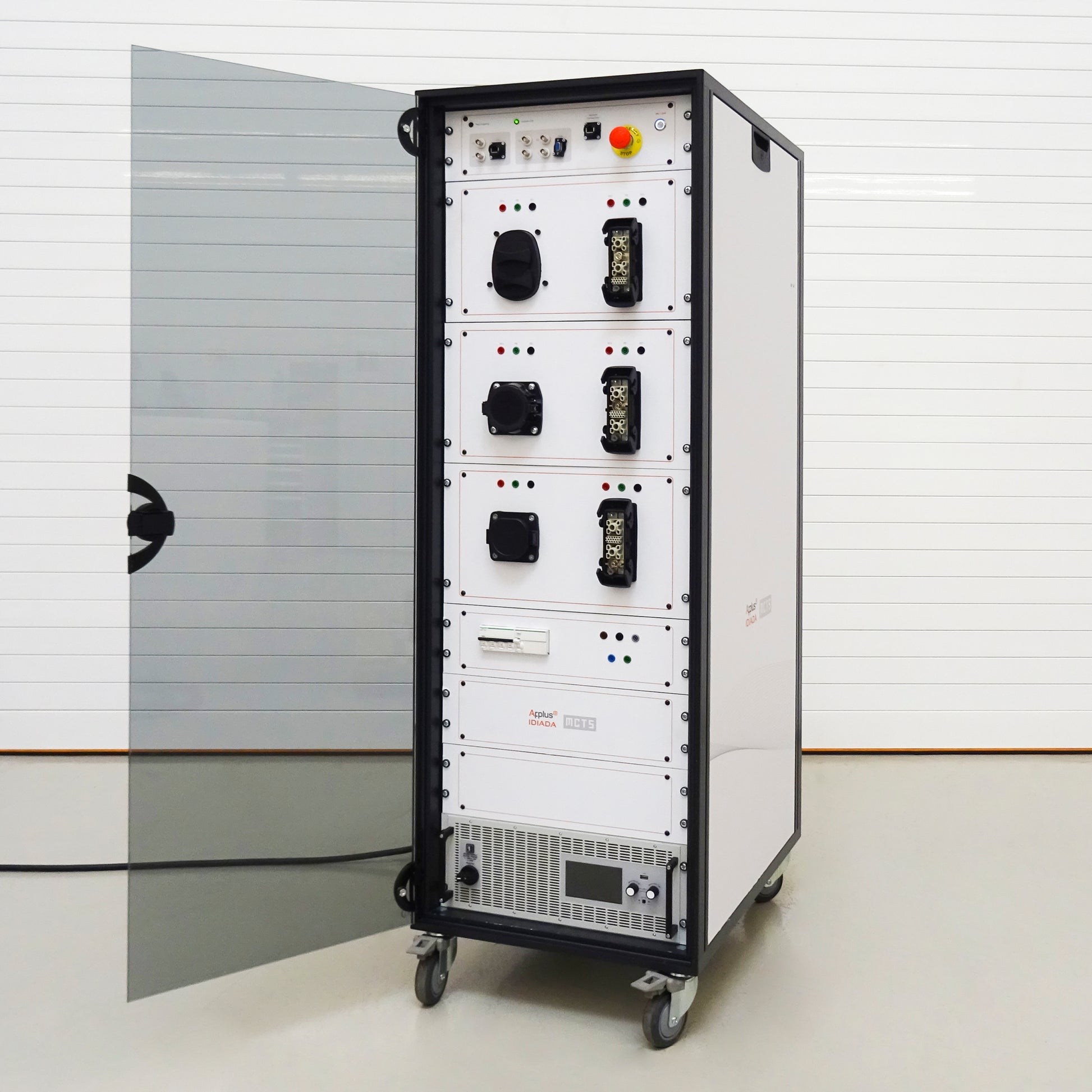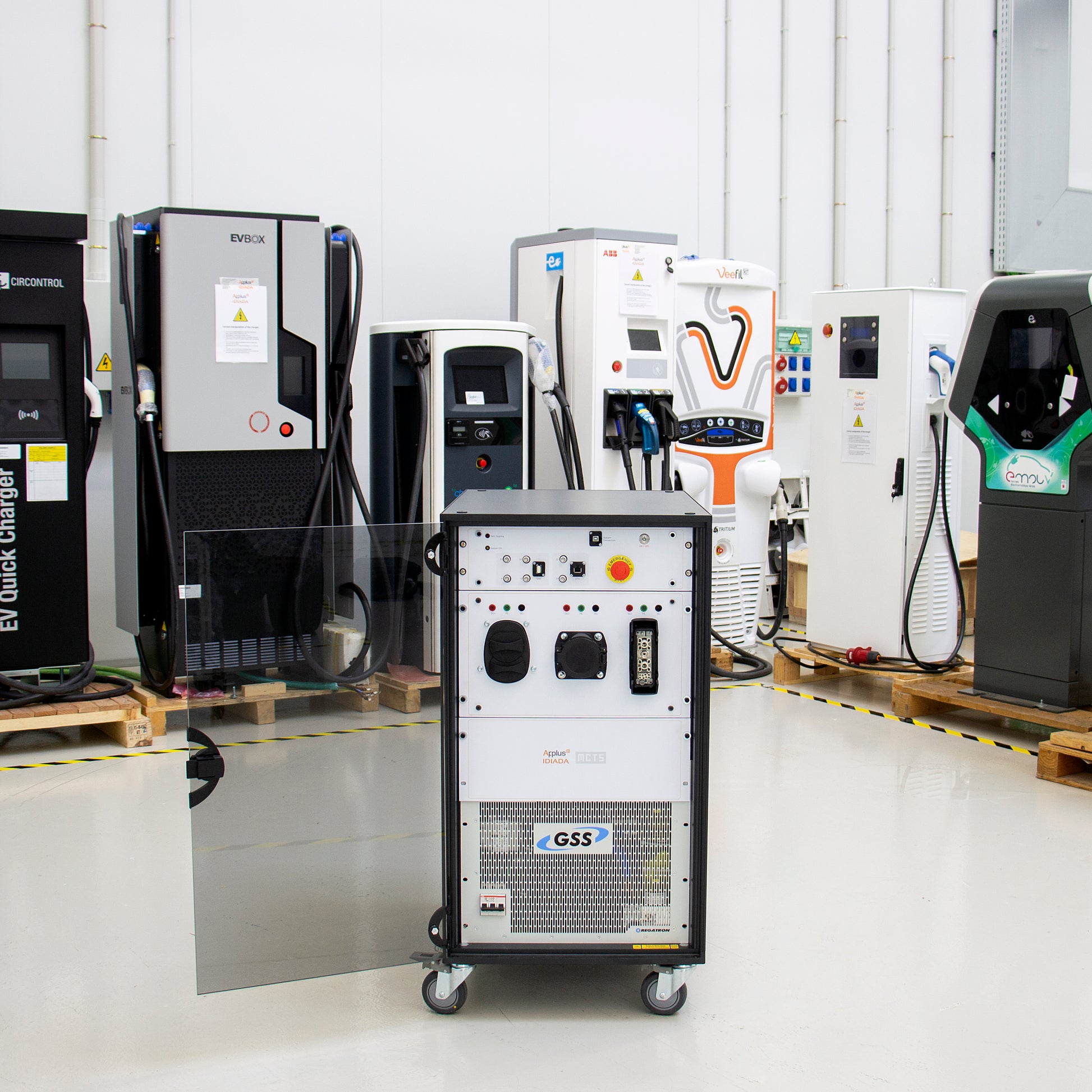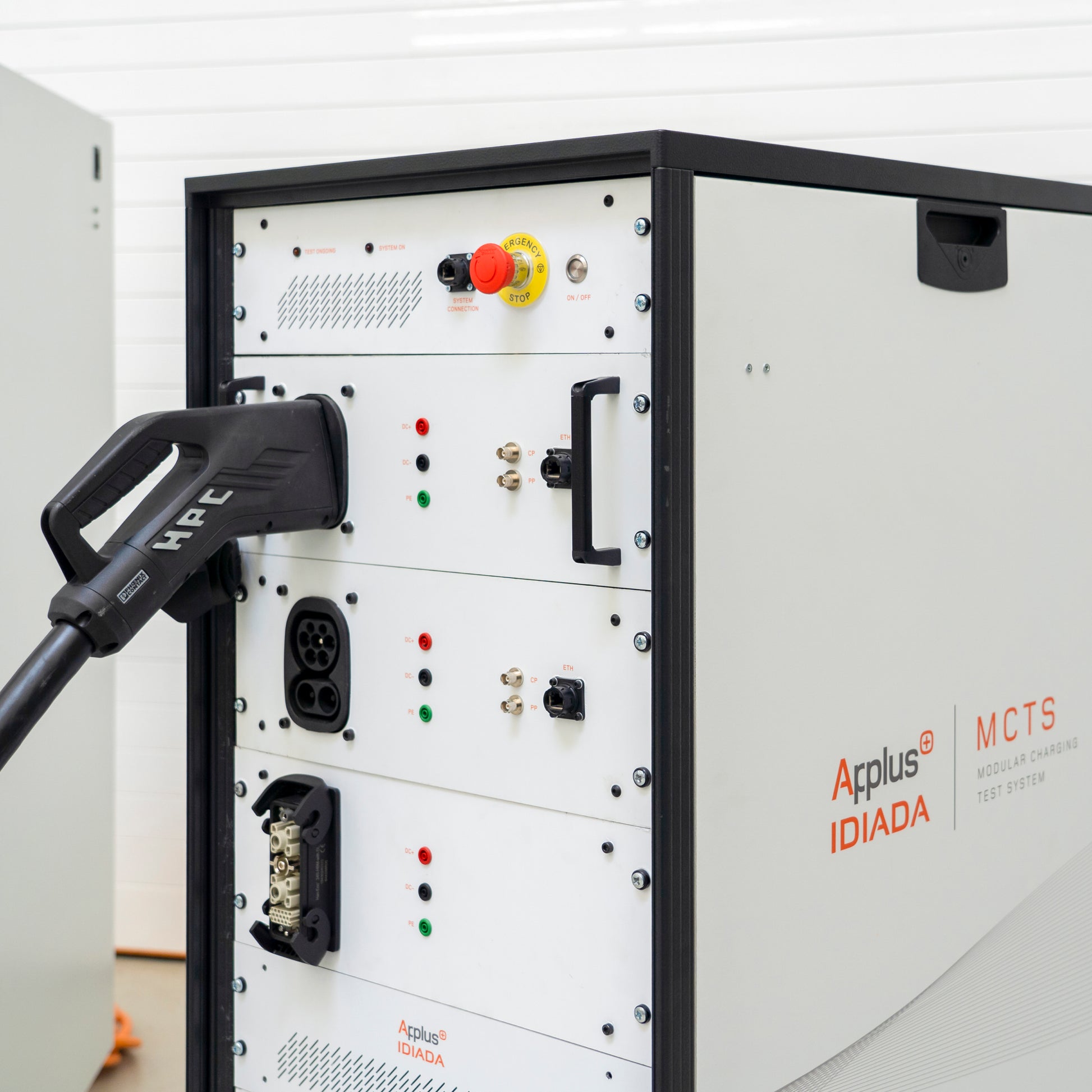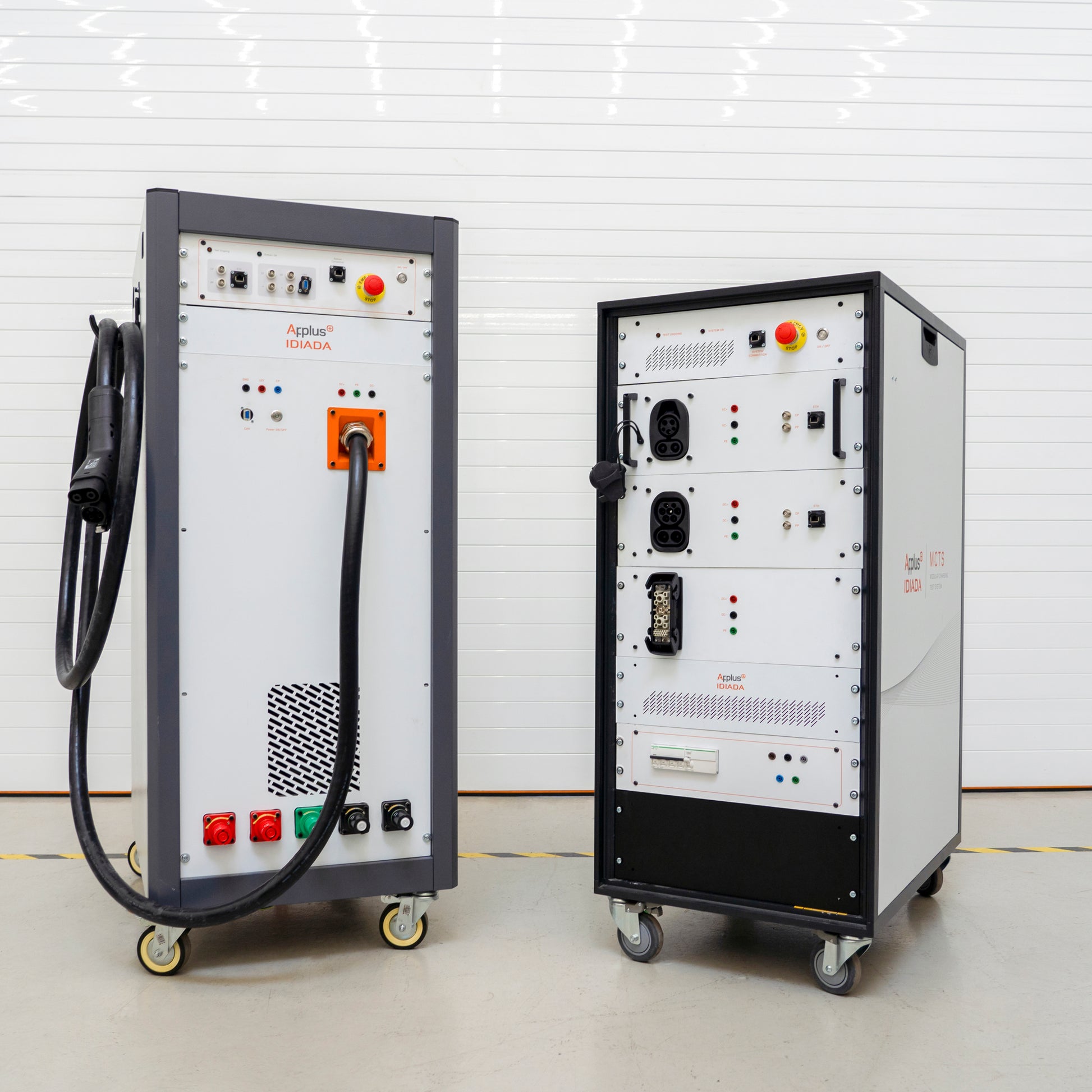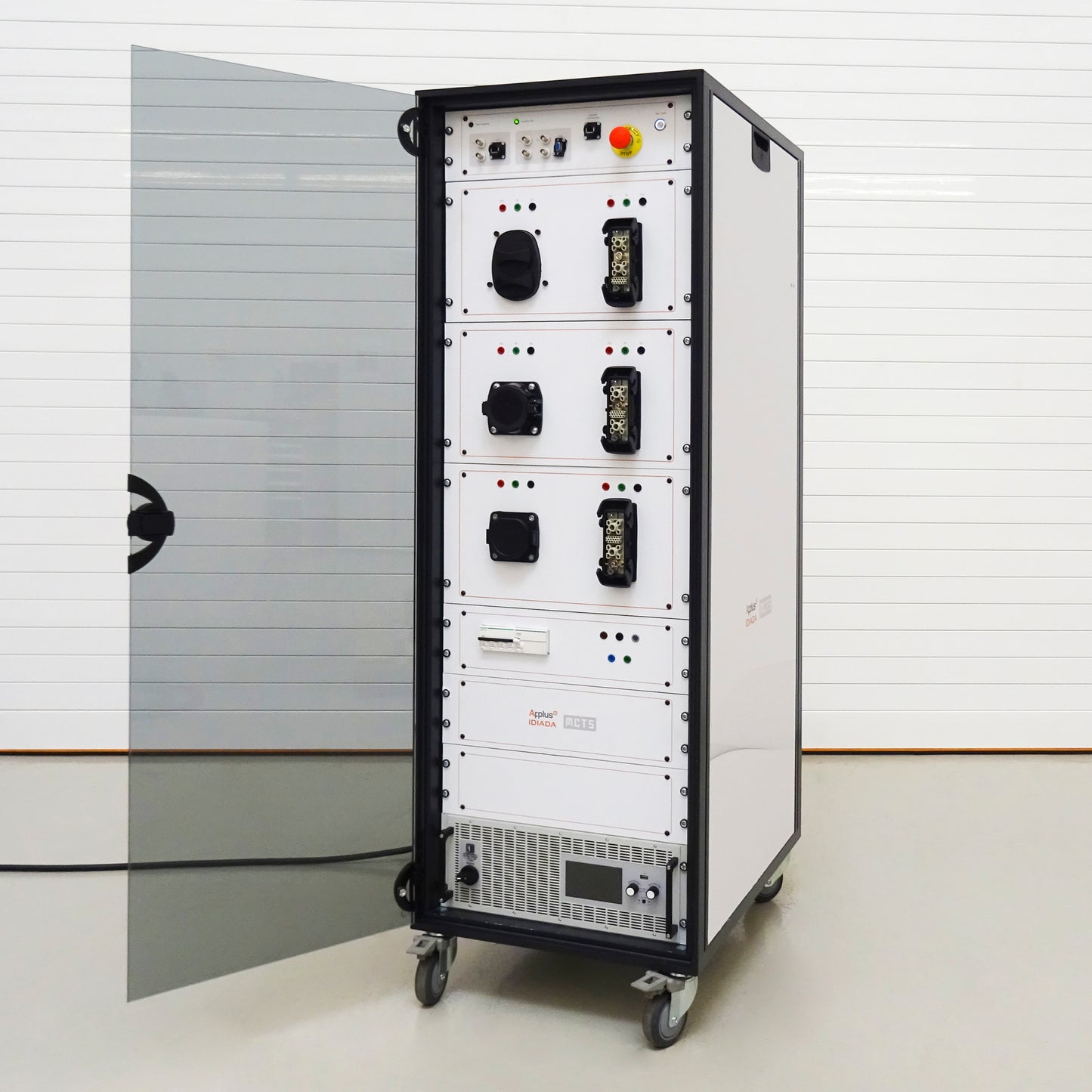
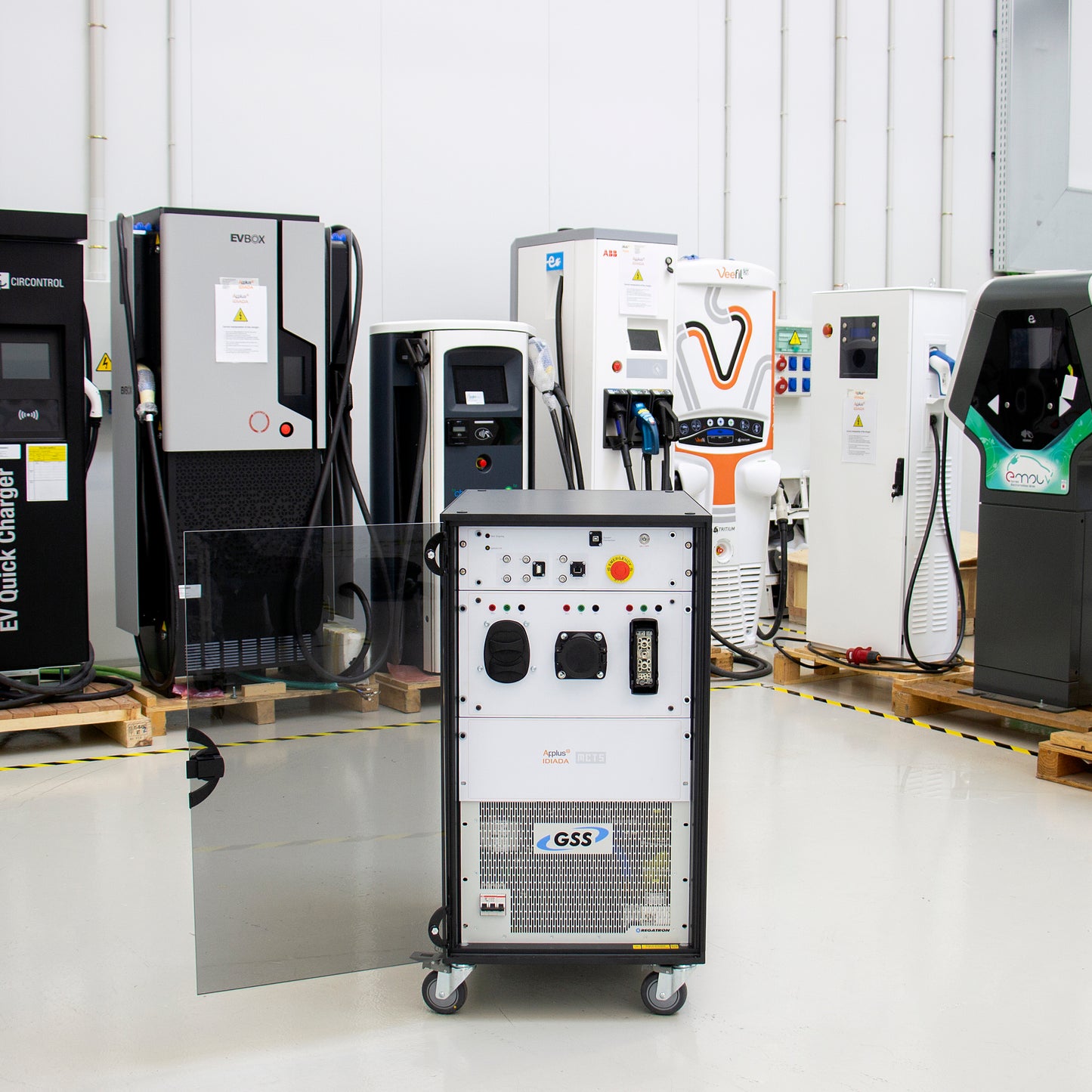
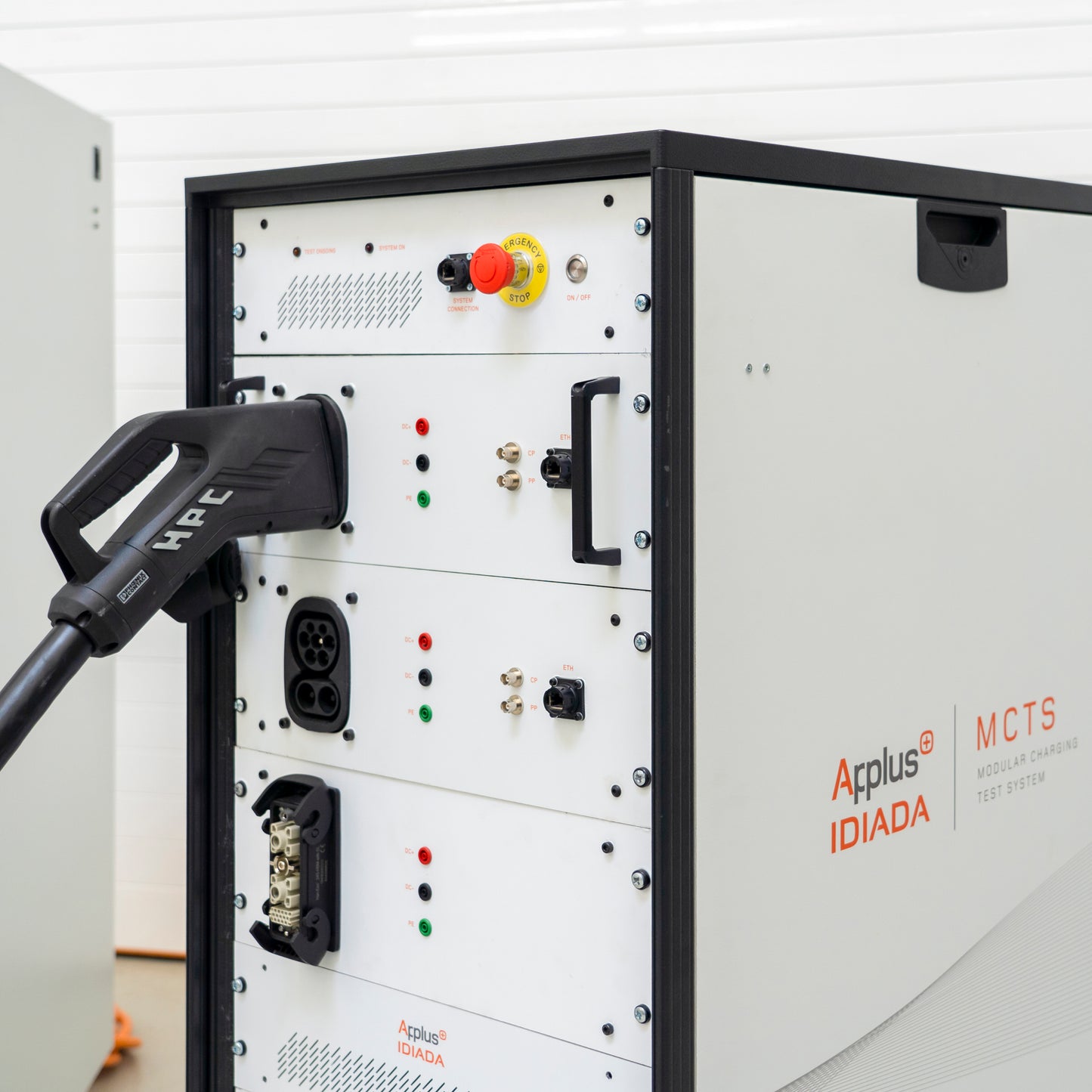
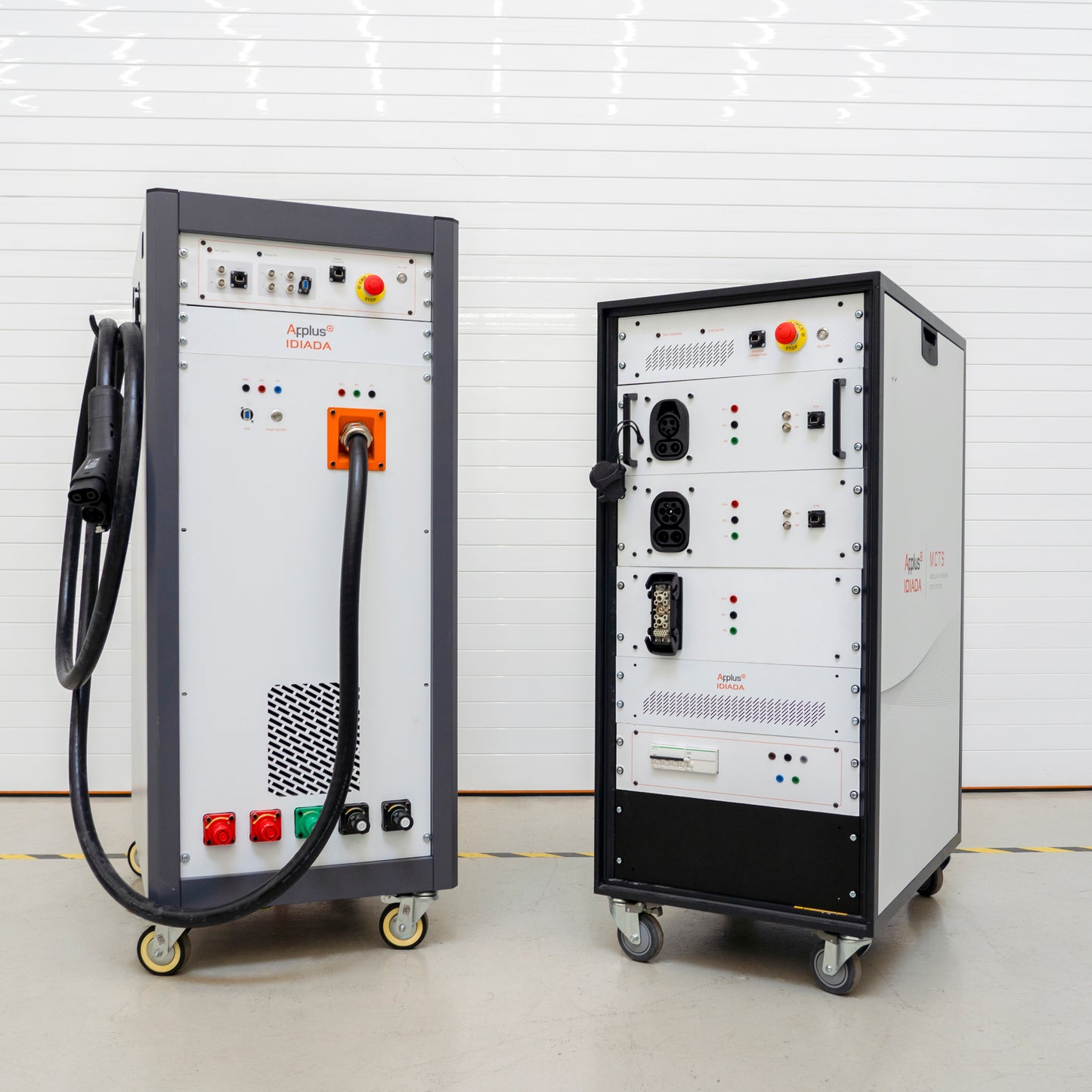


User-friendly test system
HMI can be installed into as many computers as needed without extra cost/license
- Real-time graphs and measurements
- Pre-defined test cases
- Test case concatenation on a list


Automatic reporting
Automatic filled reports that can be exported to Excel or PDF
- DC voltage and current graphs, communication graphs, etc.
- Automatic analysis of messages content and timings
- Checks of CP values and power lines


Continuous Integration
New regulations, versions, or corrections
- Upgrading and adding user functionalities
- Addition of new test cases
- System related features/optimizations
- Releases are shared remotely and installed by the user


Modularity
Standalone power system or configuration with existing DC power equipment
- EV and EVSE emulation mode switchable
- PLC, CAN and WLAN communication capability
- Break-out box mode for data acquisition between real EVs/EVSEs
- Power integration from 0 kW to 500 kW DC
-
EV and EVSE emulation capability
for worldwide standards
-
Pre-defined regulatory test cases
for easy validation
-
Modular and customizable system
to meet the needs of the engineer
Ready to learn more about our product?

Laia Edo
Electric Vehicle Charging CoordinatorIRIS (IDIADA's Regulatory Information System) - FAQs
What is the MCTS (Multi Charging Test System) offered by Applus IDIADA?
The MCTS (Multi Charging Test System) provided by Applus IDIADA is an advanced testing solution designed for evaluating the performance and compatibility of electric vehicle (EV) charging systems and charging stations. It is a comprehensive tool that enables manufacturers, testing laboratories, and regulatory bodies to conduct rigorous tests and validations of charging infrastructure components, ensuring their reliability and adherence to industry standards.
What are the key features of the MCTS?
The MCTS offers several key features to support comprehensive testing of charging systems. It provides a flexible and modular setup that allows users to simulate various AC and DC charging scenarios, including different charging protocols, communication standards, power levels, and vehicle/charger types. The system enables the measurement and analysis of important parameters such as voltage, current, power, and communication signals. Additionally, the MCTS offers user-friendly software interfaces for test control, data visualization, and result analysis.
Who can benefit from using the MCTS?
The MCTS is beneficial for a range of stakeholders involved in the development, manufacturing, and certification of EVSEs. EV and EVSE manufacturers can utilize the MCTS to validate the conformance and performance of their products before market release. Testing laboratories can use the system to perform comprehensive evaluations and certifications of charging infrastructure components, ensuring their compliance with international standards. Regulatory bodies and certification authorities can rely on the MCTS to assess the safety and reliability of charging systems and establish industry guidelines. Overall, the MCTS serves as a valuable tool for enhancing the quality and compatibility of EV charging systems, ultimately benefiting EV manufacturers, charging infrastructure providers, and end-users.

